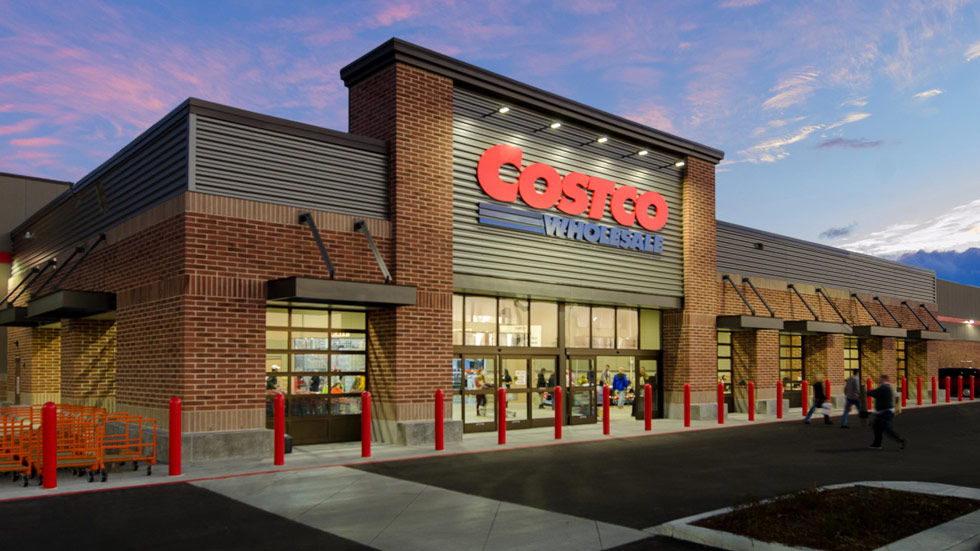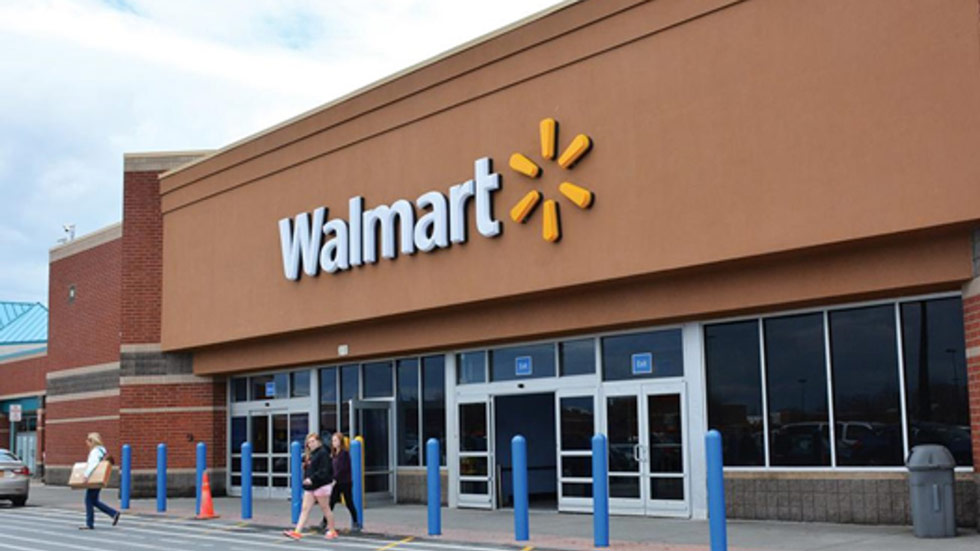Agree Realty and its real estate portfolio have been constructed not only to withstand, but to flourish during trying times, according to its CEO.
A decade of acquiring and developing properties net leased to industry-leading retail tenants helped produce double-digit returns for Agree Realty Corp. (NYSE: ADC) during 2020. With the REIT now eyeing an array of investment opportunities across its portfolio, it’s a pace that shows little sign of slowing.
Joey Agree, president and CEO, says that since 2010 the REIT has focused its attention on the mission-critical stores of the strongest and best-positioned retailers in the country.
“These retailers have the balance sheet and strategy to navigate disruption in an omni-channel world. Our investment in these market leaders has resulted in a portfolio that is 67% investment grade and has proven highly resilient to disruption during the pandemic,” Agree says.
In fact, the global disruptions of COVID-19 have only sharpened Agree Realty’s focus and accelerated its growth. Total real estate investment activity for 2020, inclusive of acquisition, development, and Partner Capital Solutions projects completed or currently under construction, amounted to a record of $1.36 billion. The properties are net leased to 47 industry-leading retail tenants operating across 20 sectors and are located in 40 states, expanding its portfolio to over 1,100 properties.
Investments are concentrated in 10 recession-resistant retail sectors that include home improvement, general merchandise, grocery stores, auto-parts stores, tire and auto service, and off-price retail. Walmart heads the list of top tenants, which also includes Costco, TJ Maxx, Home Depot, and Walgreens.
As of early December, the portfolio was 99% leased. Rent collections for each month from September through December stood at 99%.
Partnering With the Best
Agree Realty and its real estate portfolio have been constructed not only to withstand, but to flourish during trying times, according to its CEO.
“Our mission is to be a partner to the best retailers in the world, and it would be an understatement to say that COVID-19 has produced a trying time,” Agree says. The pandemic has created a “massive disruption” that the best retailers have navigated and, in many instances, thrived from due to their logistics and distribution platforms, according to Agree. “Our fortress balance sheet and partnership with these companies has enabled us to achieve sustained success,” he says.
Agree says the company’s growth strategy focuses on the acquisition and development of net lease retail assets, as well as serving as a capital partner to third-party developers.
Today, the Agree Realty portfolio is comprised of 86% national and super-regional tenants operating in e-commerce and recession-resistant sectors and 66% of tenants are rated investment grade.
“Over the last two years the company has greatly reduced its exposure to health and fitness, movie theaters and entertainment retail, which are some of the lowest-rated sectors in the peer set,” says Simon Yarmak, managing director at Stifel Nicolaus & Co. “As a result, the quality of the portfolio has been built up and pared down through dilution and disposition of some of the more challenged categories hit hard during pandemic.”
In most cases, the company buys retail net lease assets from third party sellers, but it also will execute on select sale-leasebacks with industry-leading tenants. Agree Realty is also growing its ground lease portfolio. As of Sept. 30, this portfolio spanned 73 properties in 25 states and represented over 9% of the total portfolio.
“Our ground lease portfolio is a good example of the careful portfolio construction and detailed real estate analysis we consistently do to mitigate risk and maximize quality. It provides a compelling risk-adjusted value proposition for our shareholders,” Agree says.
Top Performer
The REIT’s acquisition total for 2020 of $1.315 billion has been balanced by $1.35 billion raised in equity and an inaugural public bond of $350 million. Together, these moves reveal a rapidly growing company with a 5.3% year-over-year increase in the third quarter dividend.
“Agree Realty took themselves to another level this year, and the stock is one of the best performing within its peer set,” Yarmak says. He adds that the $1.3 billion in 2020 acquisitions almost doubles what the company did in 2019, “and over the last several years they’ve been able to outdo themselves, year in and year out.” Yarmak says he is confident the REIT can repeat the performance again in 2021 based on the company’s cost of capital and its balance sheet, both of which he feels are better than for most in the sector.
Ki Bin Kim, an equities analyst at Truist, projects 6% to 7% FFO growth on average per year for Agree Realty for the next five years. “I find that companies that do well on the left side of the balance sheet, managing their business and thoughtfully growing their portfolio, also tend to do well on the right side of the balance sheet, raising equity to make their deals leverage neutral and combined with longer duration debt,” he says. “Agree is doing a great job on both sides, doing what’s best for its shareholders long-term and moving at a methodical pace. We think our projection is very achievable, and if the company’s growth exceeds our projection, that wouldn’t be a surprise, either.”
Supporting Future Growth
Given that the REIT is growing its top line by 30% and adding 300 properties in a single year, Agree stresses the need to continue to invest in people, processes and systems. “We need to do this not only to support our current growth but our future growth, given the large set of opportunities that are available to us,” he says.
Another priority for the company is to change perceptions around the value of retail real estate, in an era of rising investor and consumer focus on e-commerce. “We are rethinking retail by capitalizing on distinct market positioning in the retail net lease space and leveraging our expertise and relationships to identify superior, risk-adjusted opportunities,” Agree says.
That involves trying to get market participants to understand that the future of retail lies in the free-standing format, Agree explains. The best retailers in the world, he says, maintain a freestanding format because it allows them to execute on all fronts: in-store shopping; online purchase and contact-free pick-up; micro-fulfillment; delivery windows; and, efficient ingress and egress of vehicular traffic.
“These are the qualities that will enable brick-and-mortar retailers to thrive,” he says, adding that it will be critical for retailers to adapt to a free-standing physical platform in the 21st century.
“We’re in a world where change is dynamic and fast, and experimentation is encouraged rather than discouraged, with the status quo no longer acceptable,” he says. If anything positive has come from COVID-19, Agree believes it’s “the 10 years of innovation and efficiency” that have been driven in a period of months.
“The pandemic has accelerated the adoption of the inevitable, and it will leave in its wake a lot of small businesses that didn’t have the ability to not only sustain, but to invest,” Agree says. “Retailers that are free-standing can morph and change their prototypes for varying customer demands. And everyone who is not changing, we consider dying.”
“Tremendous Opportunity” Ahead
Looking ahead, investors can expect Agree Realty to continue to source, originate, and invest in the highest-grade retailers in the country, according to its CEO. “We see tremendous opportunity in the large and highly fragmented segment of retail net lease and we’re well positioned to take advantage of the numerous opportunities we see,” Agree says.
At the same time, Agree Realty plans to continue delivering double-digit returns while maintaining its fortress balance sheet. “We have been thought leaders and ahead of retail trends that we identified in our nascent days. We intend to continue developing relationships and executing on transactions with retailers that are positioned to succeed in a post-pandemic, omni-channel world,” Agree notes.
A Hands-On History
While acknowledging the unique challenges the pandemic created, Joey Agree readily admits that he was well prepared by his father, Agree Realty Executive Chairman Richard Agree, who he describes as “the ultimate mentor and role model.”
The elder Agree established Agree Development Company in 1971 and over the next 23 years developed more than 40 community shopping centers in the Midwest and Southeast. In 1994, the company changed its name to Agree Realty Corp. and went public with an initial purchase offering that raised approximately $50 million.
By 2008, Agree Realty owned 70 properties, most of which it had developed. Over 70% of rents stemmed from a three large retailers, Walgreens, Kmart, and Borders Books. “At the time, I was a young executive building a team, and we owned Borders’ flagship store in Ann Arbor,” recalls Joey Agree.
“Amazon was solely a digital book retailer back then, and Borders was the first retailer it eviscerated. I had a front row seat into the future of e-commerce,” Agree recalls. “I could see that price transparency for the consumer was becoming increasingly available, and that hard and soft goods were easily commoditized and could be sold more cheaply online, eroding margins and reducing top-line revenues. The entire paradigm of the retail industry was about to change—and so was Agree Realty,” he adds.
By the time he was appointed COO in 2009, Agree was developing the strategy that would propel the company to its current position. When Borders declared bankruptcy in 2011, the REIT was already marketing the closed stores it owned for potential re-tenanting or disposition. A 2010 secondary common stock offering raised $31 million, and Agree Realty, once solely a developer, was poised to start acquiring high-quality, net-lease retail assets.


